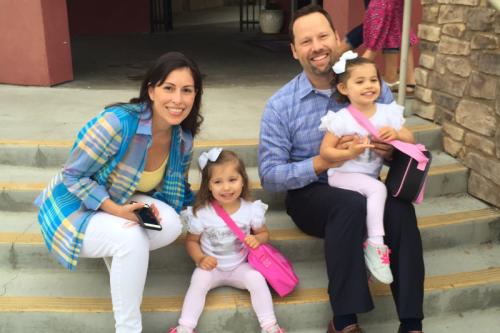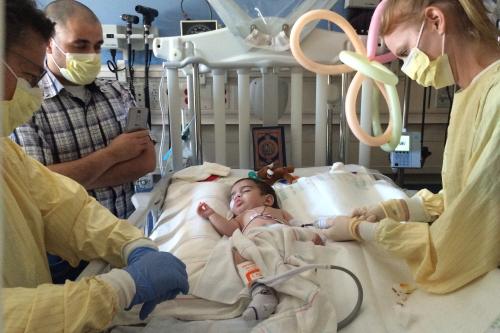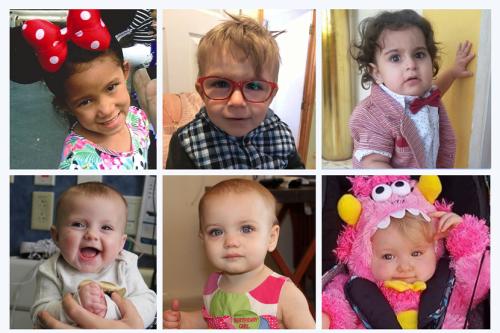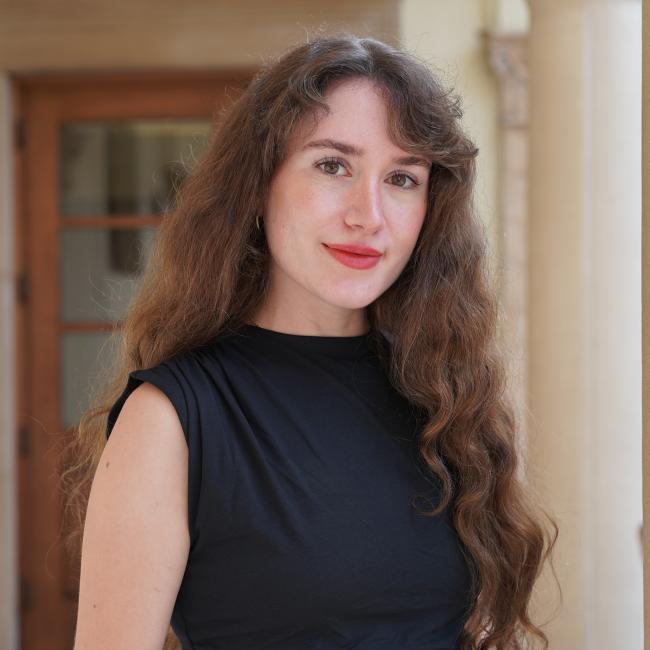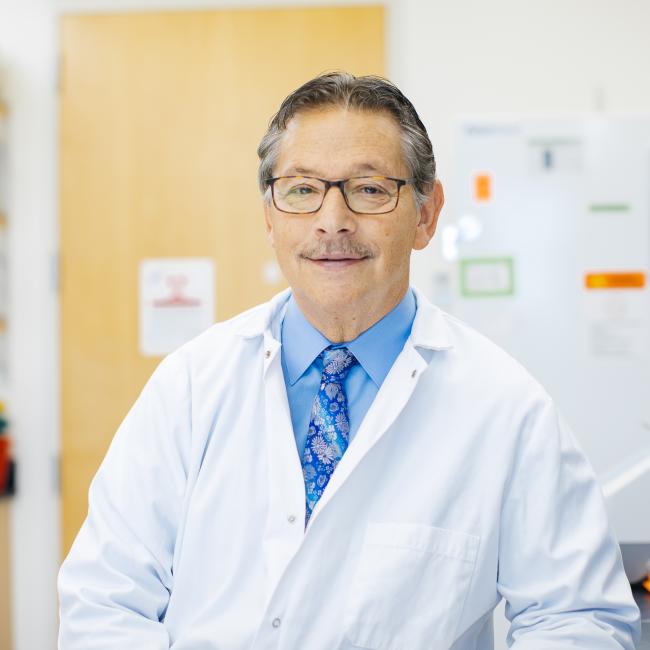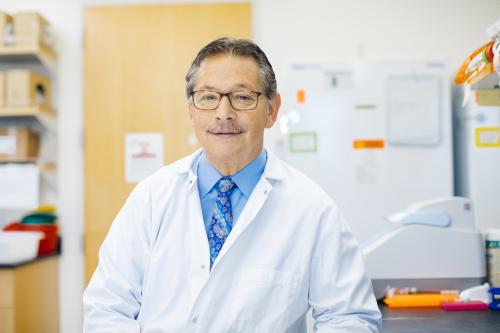
Donald Kohn awarded $14.7M CIRM grant to advance ADA-SCID gene therapy toward FDA approval
Dr. Donald Kohn has been awarded a $14.7 million grant from the California Institute for Regenerative Medicine to develop a commercial manufacturing protocol for a groundbreaking gene therapy targeting ADA-SCID, a rare and life-threatening immune disorder.
ADA-SCID is caused by mutations in the gene that produces the enzyme adenosine deaminase (ADA), which is essential to a functioning immune system. For children with this condition, everyday activities, such as going to school or playing with friends, can lead to dangerous, life-threatening infections. Each year, between 8 and 10 babies in the United States are born with ADA-SCID. Without treatment, most do not survive beyond their second birthday.
The gene therapy, developed by Kohn and researchers from UCLA and University College London, has successfully treated 48 of 50 children born with this condition in clinical trials. The approach involves collecting some of the child’s blood stem cells, using a viral vector to deliver a normal copy of the ADA gene into the cells, and reintroducing the corrected cells into the child’s body.
The new grant from CIRM is the latest development in a nearly decade-long effort to make this therapy widely available to patients.
“All of the patients we’ve treated have been under research grants, but once you’ve proven something works, you can’t just keep getting grants to test it,” said Kohn, a member of the Eli and Edythe Eli and Edythe Broad Center of Regenerative Medicine and Stem Cell Research at UCLA. “In order to get this therapy to all the patients who need it, we need to get it approved by the FDA so insurance companies will pay for it.”
The path to FDA approval has proven challenging. In 2016, a pharmaceutical company licensed the therapy but halted its development in 2021 due to financial constraints. The following year, the company returned the license to UCLA.
With support from CIRM, Kohn’s team resumed treating patients in early 2023. He has since provided the therapy to eight children, all of whom have gone on to develop sufficient immune function to stop receiving weekly injections of the ADA enzyme.
While Kohn resumed treating patients, the UCLA Technology Development Group (UCLA TDG) sought a new industry partner to license the therapy. Such partnerships are crucial, as it can cost tens of millions of dollars to complete the work necessary to secure FDA approval for a gene therapy. This is due to the complexity of establishing scalable, safe and consistent manufacturing processes for the viral vectors and gene-corrected patient stem cells used in gene therapies and the costs associated with conducting clinical trials.
With no new partner on the horizon and the list of children waiting to receive the therapy growing – it now stands at more than 20 – Dr. Paul Ayoub and other Kohn lab alumni decided to take matters into their own hands.
Together, they founded Rarity PBC, a public benefit corporation dedicated to expanding access to gene therapies for rare diseases. Public benefit corporations differ from traditional corporations as they have the flexibility to prioritize social and public good over maximizing profits for shareholders. The team hopes that classifying Rarity PBC this way will allow them to price the therapy lower than a traditional drug company could.
“Our mission is to make this gene therapy available to children in need and to build a sustainable model to advance gene therapies for other rare diseases,” said Kohn, who is also a distinguished professor of microbiology, immunology and molecular genetics. “A business that makes therapies for 10 kids a year might not be sustainable, but if we can grow to offer therapies for four or five rare diseases, that’s a viable way to make these treatments accessible.”
The new CIRM funding will enable the team to establish a commercial-grade manufacturing protocol—a critical step toward FDA approval. This involves collaborating with a contract drug manufacturing organization to ensure the therapy can be produced consistently, safely, and at scale. The team will also resume treating patients on the waitlist; their cells will be processed and modified using an equivalent of the new commercial product.
By the end of the grant period, Kohn’s team aims to have all the pieces in place to apply for FDA approval, making this life-saving therapy available to children everywhere.
“We’ve worked very hard to advance this therapy toward FDA approval so kids everywhere can access it,” Kohn said. “This new funding from CIRM is a massive boost toward that goal. We hope this sets a new paradigm for how gene therapies for rare diseases can reach the patients who need them most.”
